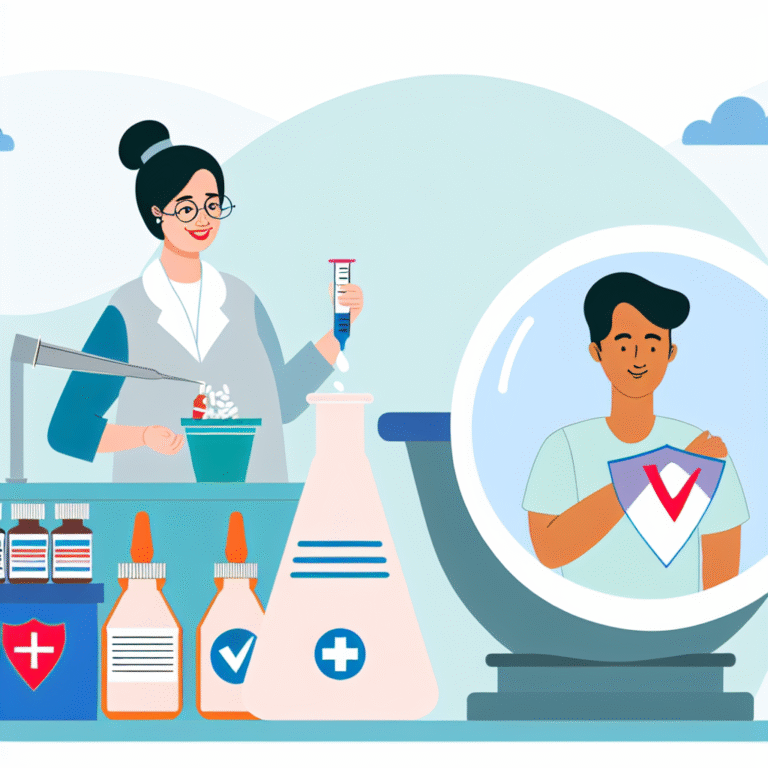Mastering Pharmacovigilance: Essential Skills for Healthcare Professionals
Pharmacovigilance: Key Skills for Healthcare Professionals
Welcome!
You’re about to learn all about pharmacovigilance, a field where safety mixes with science to keep people healthy. At Pharmacovigilance Foundations, we’re very excited to help healthcare professionals learn everything they need to know. But first, what is pharmacovigilance, and why does it matter?
In this blog post, we’ll help you understand what pharmacovigilance is and show you the important skills you need to know. We’ll cover some basics, talk about key skills, look into the tools we use, and even explore how pharmacovigilance works around the world. Whether you’re just starting or want to get better, this guide will help you find your way in the field.
What is Pharmacovigilance?
Pharmacovigilance is all about finding, assessing, understanding, and preventing bad effects or problems with drugs. The main goal is to keep patients safe and make sure medicines are used safely. Pharmacovigilance is super important in healthcare because it helps spot and fix any risks that come up with medicines.
There are rules we all follow, like those from the FDA, EMA, and WHO, which help make sure we’re doing the right thing everywhere in the world. Following these rules builds trust and keeps patients safe.
Key Skills for Pharmacovigilance
If you want to do well in pharmacovigilance, there are some important skills you need:
1. **Analytical Thinking**
– Understand and make sense of complicated data.
– Spot patterns and things that don’t match up, which might point out safety problems.
– Use statistics to support what you find.
2. **Attention to Detail**
– Make sure all data is correct.
– Develop ways to make fewer mistakes.
– Carefully look over reports to see if anything doesn’t add up.
3. **Communication Skills**
– Explain findings to coworkers, stakeholders, and those not in the field.
– Write clear reports for the regulators.
– Work with healthcare teams to talk about safety problems.
4. **Regulatory Knowledge**
– Know both global and local rules.
– Stay updated on any rule changes.
– Use your knowledge of the rules in daily work.
5. **IT Skills**
– Use databases and tools like Argus and ArisGlobal.
– Use software to make sense of tough data.
– Use technology for easy reporting and documentation.
6. **Risk Management**
– Spot safety risks in medicines.
– Plan and put strategies in place to reduce risks.
– Regularly check for risks to keep patients safe.
7. **Problem-solving Abilities**
– Solve complex problems in smart ways.
– Make good decisions even when you’re unsure.
– Face challenges with a positive attitude.
8. **Continuous Learning**
– Keep learning and training in pharmacovigilance.
– Adapt to new problems and technology changes.
– Stay up-to-date with new research and developments.
9. **Ethical Judgment**
– Follow strict ethical rules in all practices.
– Make fair decisions to keep patients safe.
– Keep sensitive information private.
10. **Teamwork**
– Work well with others in healthcare.
– Promote good communication between departments.
– Build partnerships to improve practices.
Tools and Technology in Pharmacovigilance
Today, pharmacovigilance uses lots of technology. Programs like Oracle Argus Safety and VigiFlow help report problems and keep data safe. Technology makes everything faster and more accurate.
In the future, AI and machine learning might change pharmacovigilance even more. These could help predict problems and make data easy to understand, so professionals can focus on bigger decisions.
Global Views and Challenges
Pharmacovigilance isn’t the same everywhere because different countries have different healthcare and rules. Some challenges include different ways of reporting, cultural differences, and not enough resources.
However, by working together internationally and making sure our practices are all on the same page, these problems can be fixed. Guidelines, shared databases, and cooperation between countries are key to solving these challenges.
Case Studies: Success Stories
Looking at successful cases in pharmacovigilance can teach us a lot. One story is about thalidomide, which was removed in the 1960s leading to big changes in rules. Monitoring COVID-19 vaccine safety is a newer example, showing how the field keeps changing.
These stories teach us why it’s important to stay alert, take quick action, and work together. They remind us that skilled professionals play a huge role in keeping the public healthy.
Conclusion
To become great at pharmacovigilance, you need to build skills in analyzing, knowing the rules, using technology, and making ethical decisions. Professionals in this field are essential in keeping drugs safe and improving patient care.
At Pharmacovigilance Foundations, we believe in learning all the time and tackling new challenges. Your work makes a big difference in healthcare, and by working on these skills, you help create a safer world for everyone.
Want to Learn More?
You can read more about pharmacovigilance with these resources:
– Books: “Good Pharmacovigilance Practices” by Prof. John Smith
– Articles: “Advances in Drug Safety Assessment” in The Journal of Clinical Pharmacology
– Courses: “Pharmacovigilance: Understanding Patient Safety” on Coursera
– Join Organizations: Check out the International Society of Pharmacovigilance (ISoP)
Get Involved
We want you to think about your pharmacovigilance skills and how you can get even better. Share your thoughts and experiences in the comments, and let’s learn and grow together in this important field. Your work is so important in keeping patients safe and medicines effective worldwide.






